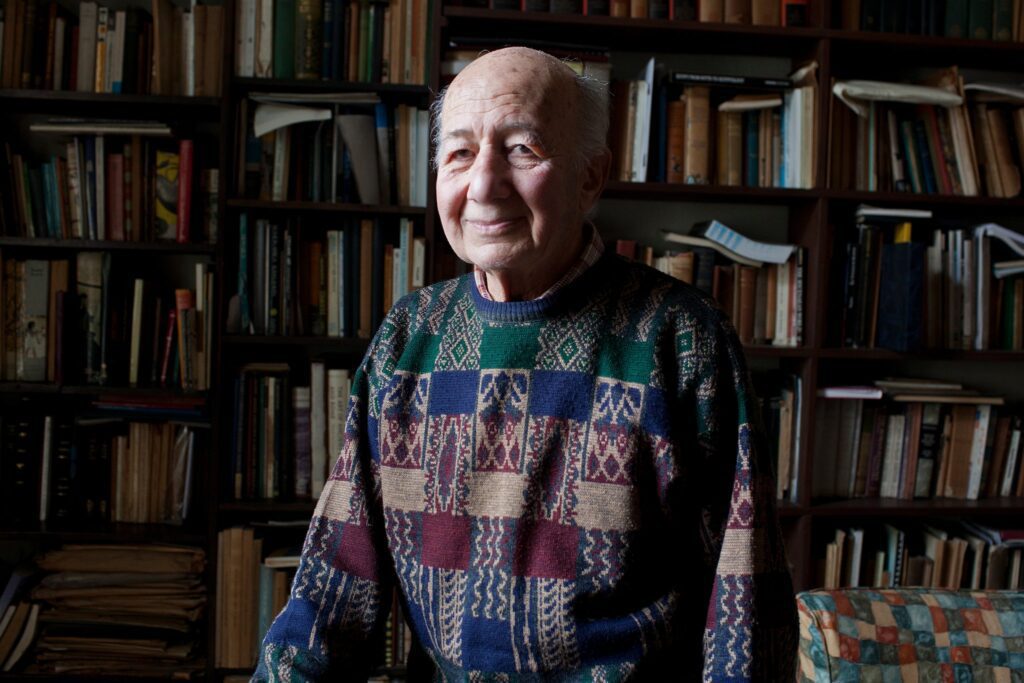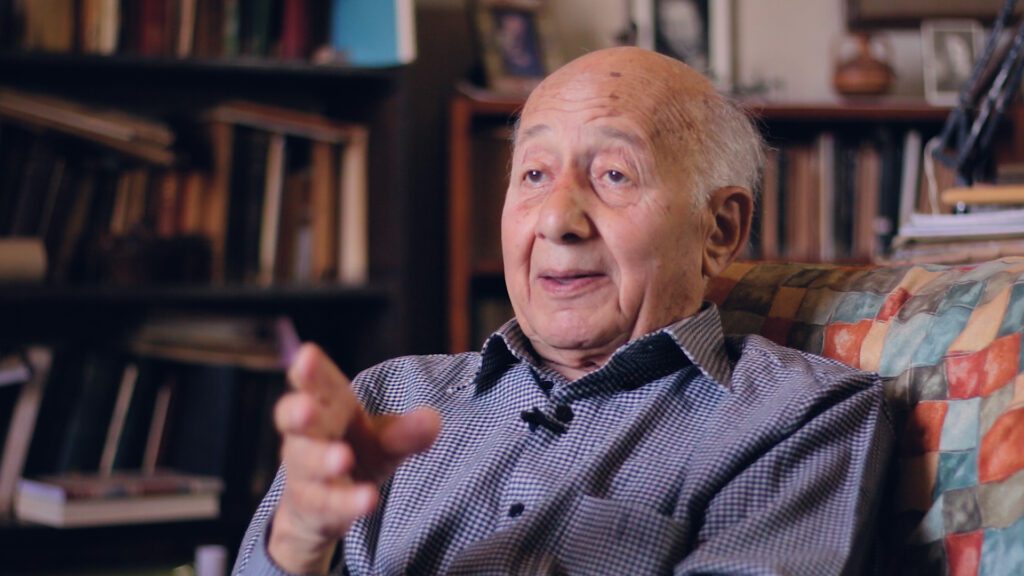A Scholar Who Dreamed Beyond His Time
Mostafa El-Abbadi was more than just an Egyptian historian — he was a visionary who dared to dream that the lost Library of Alexandria could rise again. His name is forever linked to one of the world’s most remarkable intellectual revivals: the modern Bibliotheca Alexandrina. Through his passion for history, his belief in education, and his devotion to his homeland, El-Abbadi transformed an ancient idea into a living symbol of knowledge and cultural unity.
Born in 1928 in Alexandria, a city long celebrated as the cradle of learning and culture, Mostafa El-Abbadi grew up surrounded by history. The very streets and ruins of Alexandria inspired him to explore the city’s glorious past — a time when philosophers, scientists, and poets gathered at the ancient Library of Alexandria to share ideas that shaped the world. From those roots, his lifelong mission began: to restore Alexandria’s legacy as a beacon of wisdom.
Early Life and Education: A Foundation of Excellence
Mostafa El-Abbadi was raised in a household that valued education and curiosity. His father, a scholar and educator himself, instilled in him a love for books and learning at an early age. Surrounded by stories of Egypt’s ancient civilization, the young El-Abbadi developed a fascination with history and the power of knowledge to transform societies.

He pursued his education at the University of Alexandria, where his brilliance quickly stood out. His talent for research and his deep interest in classical civilizations earned him a scholarship to the University of Cambridge in the United Kingdom. There, he studied under some of the world’s leading historians, further shaping his understanding of the ancient Mediterranean world.
His years in Cambridge not only expanded his academic horizons but also strengthened his dream of connecting the past with the present. He often reflected on how the world’s oldest libraries had once united different cultures through knowledge — and how Alexandria could do so again.

Returning Home to Alexandria
After completing his studies, Mostafa El-Abbadi returned to Egypt with a renewed sense of purpose. He joined the Faculty of Arts at the University of Alexandria, where he began his lifelong teaching career. His lectures were known for their depth, passion, and storytelling — students often described how he made ancient history come alive in the classroom.
As a professor, El-Abbadi focused on ancient Greek and Roman civilizations, but his heart always belonged to Alexandria. He dedicated much of his research to the history of the ancient Library of Alexandria — exploring how it was built, how it functioned, and how it became the world’s first center of learning.
Through his writings and lectures, he reminded Egyptians and the world that the library had not been merely a building filled with scrolls — it was a symbol of humanity’s endless search for knowledge, dialogue, and discovery.
The Dream of Reviving the Library of Alexandria
The dream of rebuilding the Library of Alexandria began to take shape in El-Abbadi’s mind during the 1970s. While many scholars saw the library’s destruction as a closed chapter in history, he viewed it as an unfinished story. He believed that modern Egypt could carry forward that legacy by creating a new library — one that embodied the same values of learning, openness, and cultural exchange.
In 1972, he presented his idea to the Egyptian government and international cultural organizations. His vision was bold: a modern library that would stand on the same ground where the ancient one once existed, overlooking the Mediterranean Sea. It would serve as a bridge between civilizations, housing not just books, but art, science, and technology.
Initially, the project seemed impossible. It required massive funding, international cooperation, and political will. But El-Abbadi’s persistence was unshakable. He wrote detailed proposals, gave lectures around the world, and tirelessly advocated for his dream. His conviction slowly began to inspire others — historians, architects, and world leaders who saw the power in reviving such a universal symbol of knowledge.
From Vision to Reality: The Birth of the Bibliotheca Alexandrina
The turning point came when UNESCO and the Egyptian government embraced El-Abbadi’s proposal. The project gained momentum in the 1980s, attracting global attention. Architects from around the world submitted designs, and finally, a stunning circular structure was chosen — symbolizing the sun rising from the sea, just as knowledge rises to enlighten the world.
In 2002, after decades of planning and effort, the Bibliotheca Alexandrina officially opened its doors. It stood proudly near the site of the ancient library, embodying the same ideals that had once made Alexandria the intellectual capital of the ancient world.
For Mostafa El-Abbadi, it was the realization of a dream that had spanned his entire career. Though he did not seek fame or recognition, the world saw him as the guiding spirit behind the project — the man who had revived an ancient wonder through pure belief in the power of education.
The Modern Library’s Global Role
Today, the Bibliotheca Alexandrina stands as one of the world’s most advanced cultural and research centers. It houses millions of books, digital archives, art galleries, and scientific research departments. Scholars, students, and tourists from across the globe visit it each year to learn, exchange ideas, and celebrate human creativity.
This modern library serves exactly the purpose El-Abbadi envisioned — a place where knowledge transcends borders. It connects East and West, past and future, and stands as proof that learning remains humanity’s most enduring achievement.
Even though the structure is modern, its spirit echoes the ancient library’s essence — curiosity, inclusion, and the endless pursuit of wisdom.
Scholarship and Contributions to Academia
Beyond his role in reviving the library, Mostafa El-Abbadi made numerous contributions to historical scholarship. He authored several books and academic papers, particularly on the history of the ancient Mediterranean, Greco-Roman Egypt, and the Library of Alexandria. His best-known work, The Life and Fate of the Ancient Library of Alexandria, remains one of the most comprehensive studies on the subject.
El-Abbadi’s research combined historical accuracy with a deep emotional connection to his homeland. He was known for bridging academic depth with accessibility, making history understandable and inspiring to students and readers alike.
Through his writings, he helped the world appreciate the value of Alexandria not just as an ancient city, but as a living symbol of dialogue between civilizations.
Awards and Recognition
Mostafa El-Abbadi’s work earned him respect from scholars, institutions, and governments around the world. He received numerous awards and honorary titles in recognition of his lifelong dedication to education and heritage preservation.
Yet, despite his achievements, he remained humble. He often said that his greatest reward was seeing the new library open its doors to future generations — a place where Egyptian and international students could learn together and share ideas, just as scholars had done thousands of years ago.
He also played a significant role in mentoring young Egyptian historians, encouraging them to pursue research, travel, and academic excellence. Many of his students went on to become respected scholars themselves, continuing his legacy of knowledge and curiosity.
A Legacy Rooted in Hope and Knowledge
When Mostafa El-Abbadi passed away in 2017, Egypt lost one of its brightest minds — but his legacy continues to live through the Bibliotheca Alexandrina and the countless lives he influenced. His dream not only revived an ancient institution but also rekindled global respect for Egypt’s intellectual history.
He taught the world that the true power of a library lies not in its walls or books but in its spirit — the spirit of learning, questioning, and sharing. In his vision, the new library would not just preserve the past but also illuminate the future.
Today, his influence extends far beyond Egypt. Scholars around the world cite his work, and his ideas continue to inspire cultural projects that bridge tradition with innovation.
The Philosopher Behind the Historian
What made Mostafa El-Abbadi unique was not just his academic brilliance but his philosophical outlook. He saw knowledge as a universal language — a force capable of uniting humanity beyond politics, religion, or geography. He believed that learning should be open to everyone and that education was the foundation of peace.
His approach to life was deeply human. He valued kindness, humility, and intellectual curiosity over fame or wealth. Friends and colleagues often described him as gentle and patient — a man who listened more than he spoke, yet whose words carried immense wisdom.
He once said that rebuilding the library was not just about books, but about “rebuilding the human spirit.” That belief defined his life’s work and remains one of the most powerful ideas to emerge from modern Egyptian thought.

Why Mostafa El-Abbadi’s Story Matters Today
In an era dominated by technology and constant change, Mostafa El-Abbadi’s story reminds us of the timeless value of knowledge and human connection. His efforts show that one individual, driven by conviction and vision, can revive the lost heritage of an entire civilization.
His work is also a lesson in patience and perseverance. The dream of the Bibliotheca Alexandrina took decades to come true, facing challenges at every step. Yet, El-Abbadi never gave up — proving that ideas rooted in purpose will eventually find their way into reality.
In today’s world, where libraries are transforming into digital spaces, his message remains relevant: technology should serve knowledge, not replace it. The spirit of discovery, dialogue, and cultural exchange that he championed continues to guide educational institutions globally.
A Timeless Legacy of Knowledge and Vision
Mostafa El-Abbadi’s life is a story of faith — faith in learning, in humanity, and in the enduring power of ideas. He connected ancient Alexandria to the modern world, reminding us that wisdom never truly disappears; it simply waits for someone to rediscover it.
The Bibliotheca Alexandrina, glowing along Egypt’s Mediterranean coast, stands today as a living tribute to his dream. Every visitor, every book, and every conversation within its walls keeps his spirit alive.
For Egypt and the world, Mostafa El-Abbadi remains a symbol of what knowledge can achieve when guided by vision and love for humanity. His legacy proves that even one scholar, with a clear purpose and unwavering heart, can reshape history.
Do follow UAE Stories on Instagram
Read Next – UAE’s Moro Hub Partners with Dell to Boost Cloud Innovation














